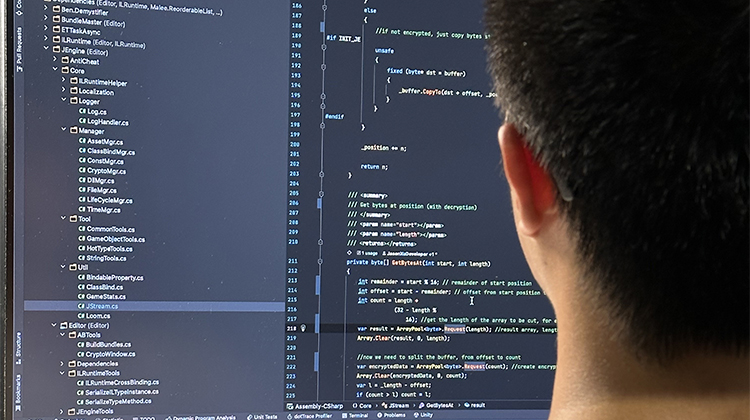How a Precocious Programmer Would Teach STEM

To say Jason Xu, a former student of Burgmann Anglican School, is good with computers is a slight understatement.
In his first year at the ANU currently, his ability with IT and programming has let him create and release a widely used open-source debugging tool and bypass most of the early computer science course and launch straight into third year subjects. He has an eye on a research career either at uni or at a tech company.
It would be an endorsement of STEM and tech teaching if Xu had achieved his level of proficiency through school but as with many programmers, much of his expertise was achieved off his own bat.
Like most young people, Xu loves video games and his initial interest in programming flowed from his gaming, quite early. His pathway indicates that programming resources available through platforms like GitHub should be leveraged in IT teaching.
“I first learned programming skills when I was in year six through looking at online tutorials, then started exploring platforms like GitHub to increase my knowledge. I’ve enjoyed gaming from a very early age and wanted to improve my knowledge of programming and writing code, so I could learn to create my own games,” he says.
Those skills developed and before leaving high school Xu created and released a platform which supports gaming, a tool that some 1600 programmers and leading gaming manufacturers use to debug games in real time without disrupting play.
“If you find an issue or a bug in a game, you have to submit an update to the game via Apple App Store or Google Play, which goes through a review process that can take some time. My platform solves this issue as it fixes the bug in real time. This is great for programmers, as if bugs in the game go unfixed for a period of time, this means many players will abandon the game.
“Similar platforms exist, but they are very expensive. I wanted to create something that was free, which is the opensource version, and then I’ve commercialised a more sophisticated version of the program. I wanted to design a solution that was accessible and meant people could continue creating and enjoying games, without having to worry about not being able to fix bugs.
“I’ve sold it to a few different companies who are looking for solutions to help them quickly fix bugs without disruption to their games.”
Many of technology’s leading figures didn’t complete their undergraduate degrees but Xu hasn’t been tempted to bypass uni and go straight into the workplace.
“Education is very important to me. I love spending time researching and learning more about computer science, and university is an important next step for me. I’m currently in my first year of university, but the goal is to achieve a PhD in computer science.”
He has some perspective of how programming and technology is taught and of the strengths and weaknesses in current STEM teaching at school.
“There is a lot of variety in in STEM teaching, students have many choices in terms of what they can study and there are different subjects to explore. However, I think it’s still important to access online resources to learn more, as the curriculum can be limited. Though when learning online, you need to be conscious resources may not be reliable and students do need a certain level of knowledge to help them find the right resources.
“I also think it’s important for learning opportunities to expand beyond what’s happening in the classroom.
“I think if teachers provided follow-up tutorials after a lesson, or helped guide students to additional resources, this would inspire students to further their learning through reliable sources.”
He says that after completing a PhD, he would like to become a research fellow or work in a system architecture lab at a top tech company.
“I believe early exposure to STEM outside the classroom has helped me be decisive on what I want to do with my career.”
Xu won SAP’s Young ICT Explorers Competition, entering because he wanted to validate his debugging idea and see if it was useful.
“It was even greater validation to win! It was also a great opportunity to develop my presenting skills and present at a conference. It was valuable practice to convince people through my presentation that my program could be useful, and really built my confidence.
“My submission to SAP’s Young ICT Explorers helped me gain an exemption from compulsory computing courses in my first year of university, and I’m already studying the third year computing course. I feel my knowledge is beyond many others in my grade, which has helped pair me with a supervisor. It’s great to work with a mentor like this so early in my university education, and I don’t think it would have been possible at this stage without being able to fast track my studies.”